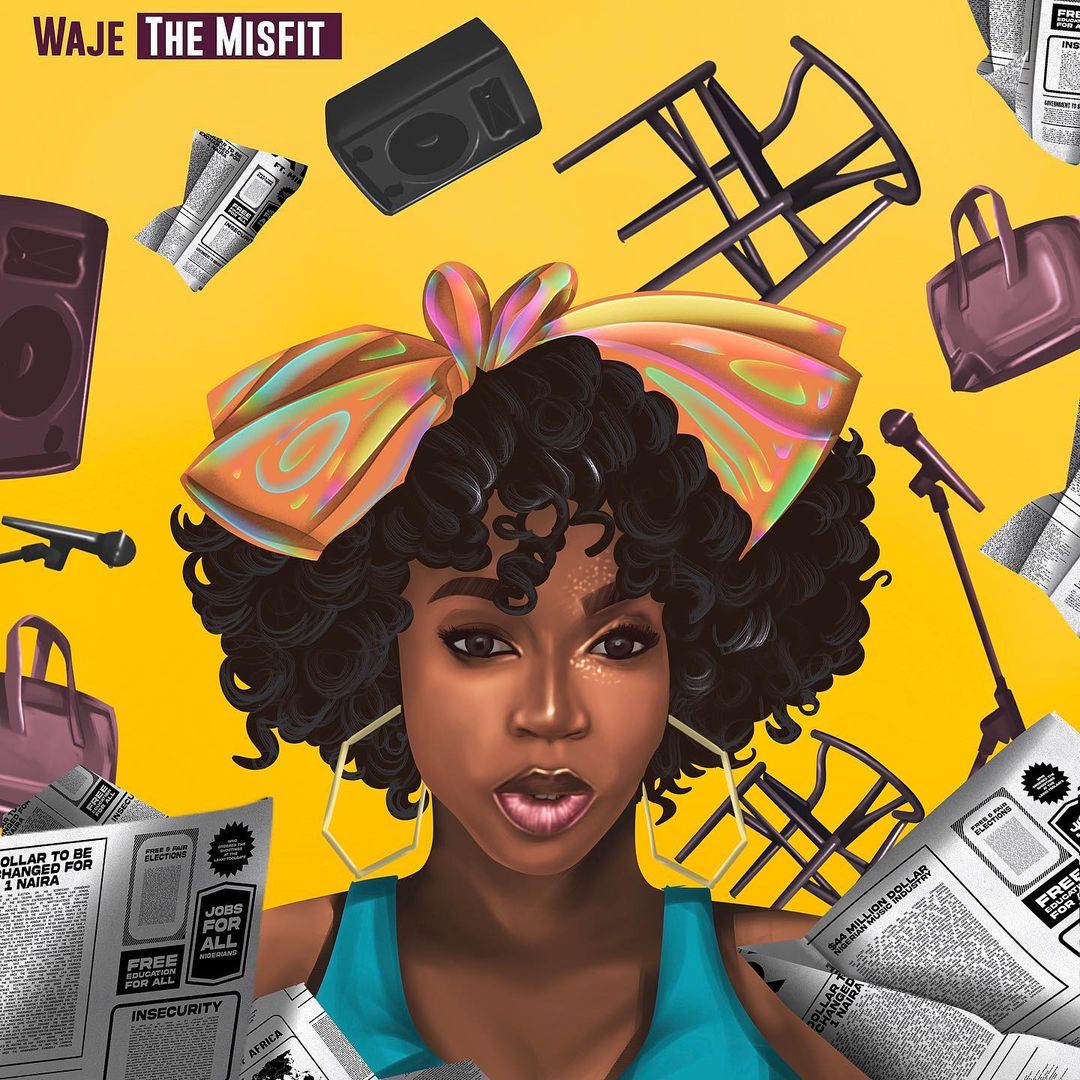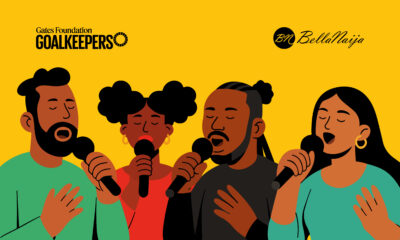Features
Adedamola Adedayo: “The Misfit” Reaffirms Waje’s Sonic Longevity
…and her indefatigable, forward-thinking posture.

While many entertainment lovers looked forward to what 2023 held for Afrobeats, Waje seized the dying moments of the year to relive her position in the industry through an album project titled The Misfit. It is her third album in the last five months, succeeding the praise-and-worship-themed album, Unbroken, which was released on her birthday, yet this one makes a bolder statement about her prolificity.
Waje, whose cognomen is an acronym for Words Aren’t Just Enough, is renowned for her excellent soulful vocals which often cuts into realms of RnB and Rock. Having spent over fifteen years in the music scene, her career has been a rollercoaster, one plagued with moments of uncertainties and inconsistencies. Michael Chukwudera has aptly captured Waje’s significance in the industry, stating that the songstress happened to be “one of the undisputed queens of soul music in Nigeria.” Yet, despite being a major, long-serving disciple of soul music in the industry, she seems to have not garnered as much acclaim as other mainstream artistes.
Once, in 2019, she had threatened to leave music, but soon she bounced back and continued to stay competitive and propel her career. 2022 thus seems to be the actual turning point in Waje’s career, with the singer’s release of three albums giving off the impression that she is now fully committed to more consistency than she has ever had since its launch. In addition to her leap, she won the Best Vocal Performance (female) category for her hit song, Last Time (from Heart Season EP), at the 2022 Headies.
“It’s been an amazing year because of the intention. Initially, when I started as a musician, it was for passion. And passion is great but you have to be intentional about where you want to direct that passion. I feel like over the years I’ve been able to figure that out. So, I’m not in any way confused,” these were the words of the Headies-winning singer in the Tea With Tay interview in November 2022.
Days before the release of The Misfit which was already set for December 30th, Waje tweeted a motivational line of thought: “setbacks don’t hinder you, they help you gain perspective.” In hindsight, it seemed that she had just reminded herself and told the entire world how she is reconfiguring her mind to continue with her music business, whether or not it yields the expected proceeds.
So, The Misfit inherits this optimism from the very beginning, with the track, Bigger, appearing to set our minds at odds with the album title. Doesn’t the word ‘misfit’, on first impression, sound rather depressing? But Waje is not alone on this track, as a rap flow from Ice Prince helps to sum up a decent, spirit-lifting song.
This momentum is sustained in track 2, Never Stop, with Waje singing: “Can’t hold me down/Don’t let the troubles that come my way push me down…” French-speaking Congolese rapper, Passi, delivers a verse on the song in his national language, inspiring a fusion that gives the hit a cross-cultural outlook. The beats and instrumentals in, Not Waiting, are lush, as the crooner, by this time, has switched into the romanticised aura of a hard-to-get lady.
Lockup comes up with a simple narrative of someone who prefers to live her own life and be unperturbed about what others think. Over the next three tracks, Try Me, Miss You Crazy and What I Want, Waje gives us a taste of that romance-famed lover-girl persona in her previous projects. On getting to Show Me Something, the atmosphere has sobered up, as the singer forms an unusual partnership with another Congolese artiste, Josy, who slays with a French-buttered verse. It is a song with decent use of sarcasm, such with lines like “I no mind if you spray me something/Chairman oh” when in actual fact, the addressee is a braggart with no real worth. This reminds one of Waje’s 2016 hit, Omini Knowest, in which the sarcasm is equally, if not more, raw as she croons, “You tell me say you know my gifts/E be like say you dey there when God dey give me”.
Oroma is a groovy song, and perhaps the most danceable hit off the album. In spite of not being in the spotlight anymore, D’banj’s vocal features – calm, cool and collected – lead one to a faint reminiscence of the good old Mo’Hits Records days. In Controller, the singer speaks up against a fictional abusive or manipulative partner. Carry for Head reveals another love-themed subplot, and the album’s final song, Aje, sees the singer luxuriate in an inflated sense of self.
Made up of an intriguing 12-track, corpus running over typically Waje-esque themes of love, female independence and thanksgiving, the whole deal ends on a special note. Her telling people to “Say my name say Waje/ I’m the best among the best/ I’m the best that’s why they can’t stop me” comes as a way of reaffirming her indefatigable, forward-thinking posture. Yet she would avoid getting caught up in the miasma of naysayers while chasing excellence.






















